I didn’t go to Belize to be uncomfortable, but that’s what happened. I distinctly remember sitting in a black, old school inner tube slowly drifting down the rivers of a cave system in the Cayo District. I was trying to cool my fever with the water around me, wishing I could somehow quell the giardia ravaging my guts. Cave tubing is generally considered to be more fun than that. Between bouts of searing stomach cramps and weak prayers to any of the various gods that might be interested in taking my case, I thought about how I got there.
Yet there I was. Surrounded by the jungle and all its beasts, those with eight legs included (such as the whip scorpion I saw the moment I entered the cave), suffering severe physical pain, yet none of the existential variety. I was handling it; I was carrying on despite adverse situations. I was surviving.
Until this point, I was unaware that I could take care of myself. I used anxiety as a shield against growth, and fear as an excuse to not take risks. I spent years cultivating my identity as a victim of the Universe’s cruelty, every day becoming more saboteur than self. My humanity was stripped away, leaving nothing but a pill-popping American stereotype, until that moment in Belize when I was forced to confront it.
The feeling was intoxicating. Embers of strength and resilience began to glow within me, the foundations of a fire I believed long since extinguished. Absolute comfort is the enemy of humanity, so in adversity, mine was returning.
After a brief visit to the United States where I received unnecessary but very expensive emergency medical care for an illness the doctors said didn’t exist, I eagerly returned to Belize. I held on tight to those internal embers with the goal of making them glow brighter as I sought content for my newly founded wildlife magazine, The Naturalist, which I could not have started without the strength I discovered within myself during my time in Belize.
I was stoic with the resolve to explore the jungle in search of wild animals, an expedition I had put off for over a decade because nature makes you vulnerable, and vulnerability is no friend of comfort. I was terrified of the risks that come with stepping outside my comfort zone. But nature is the crucible of humanity, and in giving myself over to it, I endeavored to break the bonds of comfort that kept me saddled to a couch in a city that was feeling more unfamiliar to me every day, despite being my hometown.
Belize is a young, diverse country with barely more than 300,000 people living there. The coastline is the Caribbean, the inland rainforest borders Guatemala (which is attempting to annex the country), and the wildlife is as colorful as it is plentiful. I experienced the culture to be generally laid back with the spirit of resourcefulness that comes with poverty. Complaining is uncommon, and when there’s a problem (and there are problems), people tend to fix them rather than waxing poetic about the unfairness of it all.
“In fact, you’re more likely to get pearls of wisdom from the locals than gripes, and due to my extreme case of helplessness, I received quite a bit of sage wisdom. The kind of wisdom that comes from experiencing life firsthand.”
It was my Belizean friend who drove me from the Guatemalan border into nearby San Ignacio that dropped the first truth bombs on me. After an attempt to take me birdwatching, he had no problem telling me to “shut up!” Shut up and listen. Because apparently stomping through the mud and divulging every thought that entered my mind is a great way to scare animals away. Plus, the social implications were just as relevant—it was evident that in conversation I was listening so I could talk next, not to truly hear what was being said.
This metaphorical slap in the face made me shift my self-consciousness into self-awareness so I could try to listen more mindfully. This was put to the test once I entered Belize’s Chiquibul jungle for a two-week stint volunteering with Scarlet 6 Biomonitoring to help protect fledgling macaws from poachers. I was stationed deep within the rainforest, separated from civilization by three hours of dirty, crocodile-filled river and unpaved road.
There is a lot of downtime when your day’s work consists of guarding a tree in which helpless but valuable baby birds reside. I immediately lost the pack of cards that I had brought with me as entertainment. My plan was to learn magic tricks, so I don’t consider this a total loss. Instead, I listened. And listened. And listened some more. The jungle is always making noise, whether it is bugs and birds vocalizing at every level of the canopy, or the distinctive whoosh that precedes a gust of air rattling the broad leaves overhead. It almost sounds like the outboard motor that indicates civilization is on its way, but one quickly learns to tell the difference.
It rained at night a few days into the excursion. Had I known better, the hooting of neighboring howler monkey troops would have alerted me to the oncoming deluge. The sound of gunshots from nearby poachers hunting for that day’s meal was a reminder of the lives I was there to help protect, and the real danger that came with the task. They were also a reminder that I needed to keep my ears open for subtler sounds, like the crunching of a leaf underfoot a wayward boot in the pitch blackness of a jungle night.
The circumstances were undoubtedly dangerous and primitive. I kept notes daily, questioning when I would reach my limit. Would it be the bug bites that got to me, or listening for inscrutable noises through the fabric of my jungle hammock? Perhaps days characterized by loneliness would bring back the anxiety that had enveloped my every thought only months earlier.
Except that wasn’t an option. When at the utter mercy of nature there is no room for breakdowns or for begging no one in particular to be allowed to go home. The strained listening, the almost constant physical discomfort, the emotional battles—overcoming these challenges was the only option for surviving in the jungle. You quickly learn that you are capable of enduring far more than you ever anticipated.
For example, I wanted to quit after taking a wrong step and falling into the crocodile-infested waters, but instead, I dried my socks and my tears and carried on. I wanted to quit after a caterpillar that looked like Donald Trump’s toupee stung me, but instead, I rubbed on some sting ointment and carried on with my day. Even small challenges, like figuring out how to bring a fire to life from dying embers made me want to scream with frustration, but I doubled down and created a flame. The sparkling eyes of the spiders in the nighttime were nothing compared to what I endured on a daily basis just to get by.
On the 9th day, I wrote that I felt I was reaching my limit. And on the 9th day, I accepted that the only possible course of action would be to push past it. To survive. I could do whatever I wanted to, but I had to endure. That meant not allowing myself to be overcome by anxiety, not giving in to the pain of loneliness, and being grateful for comfort where I could muster it.
And I couldn’t allow my sudden return to the wild hinder my mission to encounter animals in their natural habitat. Being surrounded by crocodiles sounds scary, but in many ways, it was a dream come true for me. It’s breathtakingly beautiful to watch a flock of 30 endangered scarlet macaws squawk their way through the twilight sky, passing in front of the big full moon unencumbered by city lights. Those birds were why I was there at all, and to see them galavanting in the sky made everything worth it.
Survival isn’t simply the act of being alive. Survival is the act of living despite disadvantageous circumstances, of pursuing a goal even though there may be challenges preceding it, of doing what you can to make things work. Humans are animals, and we still carry the DNA of our ancestors who fought daily to keep the species alive. In modernity, we have become separated from our roots. The concept of survival seems like a relic of the past for many, myself included, but the capacity to thrive in a life or death situation remains.
When it was time to leave the jungle, I was conflicted. I could feel the strength and resilience that had been built within me, and I wasn’t eager to return to a life where I could settle back into dependency. My three-hour trip back to civilization would still land me in Belize, where everyone but me was raised with the sense of self-preservation that I had tasted for two weeks in the jungle.
It probably seems ridiculous to people who have their shit together, but the ascent from a pit of helplessness revitalized my existence. Who knew I was slowly dying by being too scared to make the most of my life? The tactile skills that come with tracking animals—centering my breathing, making every step intentional, and listening with ears truly open—were the building blocks I obtained in Belize that made me feel alive.
But this was manufactured discomfort. I signed up to camp for two weeks in the jungle with strange, deadly beasts. Familiarizing myself with a dangerous new environment was always optional, and while it wasn’t easy, I knew what I was getting myself into.
Belize issued a genuine survival challenge to me when on my last day in the country, a man attempted to sexually assault me through physical incapacitation. Animals respond to traumatic situations like this in one of three ways: fight, flight, or immobilization. I have traditionally fallen into the immobilization category, which is a reflex meant to buffer animals against experiencing the immediate depth of pain that comes with a traumatic experience. This situation was no different for me, except for a tiny “fight muscle” I had built during my time in the jungle. I couldn’t run, and my limbs were too weak to be used in self-defense, but I managed to speak the word, “no,” to say, “stop,” enough to keep my attacker from following through with his heinous plan.
And so, I survived.
I protected my body from violation and my soul from being robbed of its dignity. This was no fun white girl travel revelation; this was life or death. In committing myself to continued survival, I had to proceed with the reality that a man who had already exhibited violence would do so again. I was no longer immobilized, but fleeing was not an option. So I would fight.
I proceeded to spend the night trapped nearby my attacker. Escaping was impossible, as was contact with the outside world. An endless stream of tears fell from my eyes, too scared to close them lest I miss an important detail in the overwhelming darkness of the Belizean night. I had purchased a machete days earlier as something of a souvenir, but that night I was prepared to use it as a weapon with every ounce of mental and physical strength I could muster.
Lessons learned in the jungle came back to enhance my senses, reconnecting me with the wildness within me that I could use to prolong my existence. I analyzed every croak of a toad to ensure it wasn’t a heavy foot falling on the floorboards. I listened to the soft hoots of nocturnal birds to ensure I didn’t mistake them for the labored breathing of a lawless man more than twice my size.
And so, I survived.
At sunup I fled the country, drained of energy and faith in humanity. Instead, I had strength, resilience, and a machete. And a confidence that if anyone tries to fuck with me again, they will be meeting a combination of all three.




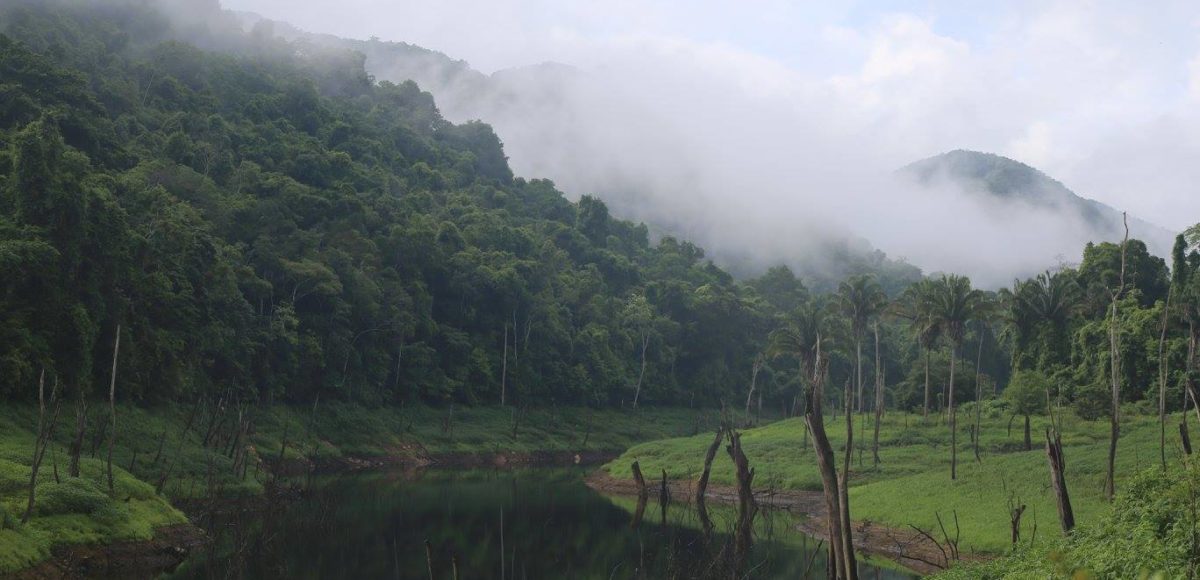
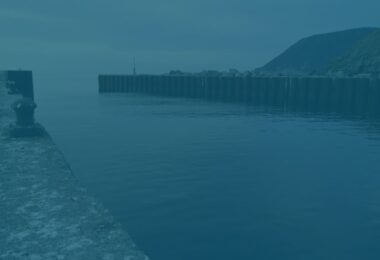
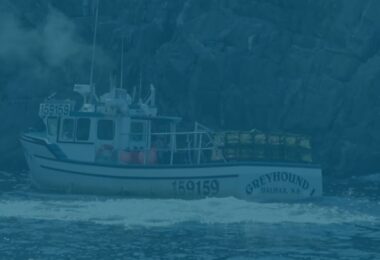
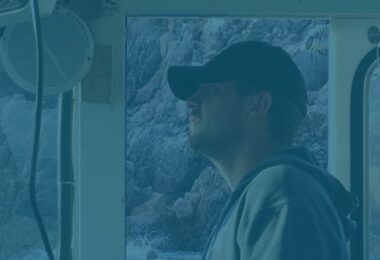
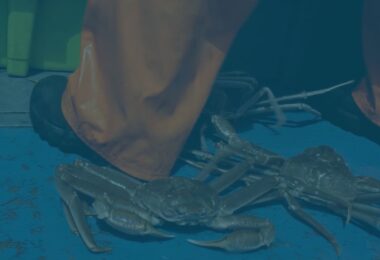

No comments